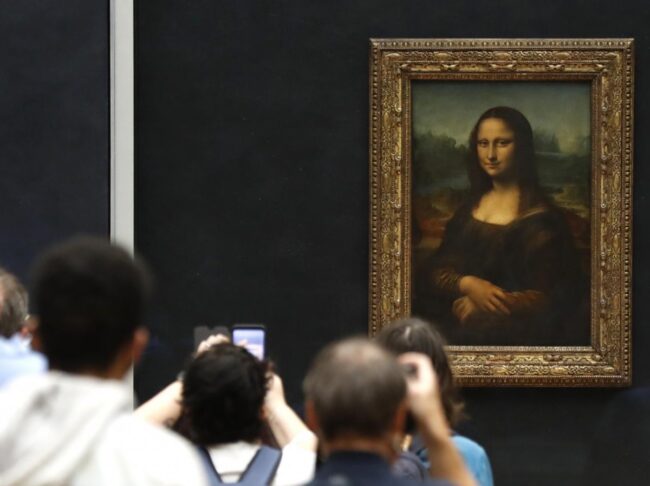The world of art and collectibles is a complex and highly regulated field, particularly when it comes to taxation. In France, the tax authorities have specific rules and regulations governing the sale of works of art and precious objects. Whether you’re an art collector, dealer, or simply looking to sell a valuable item, it’s essential to understand the tax implications of your transaction.

What are works of art and precious objects?
According to French and European laws, works of art include a wide range of items, such as:
- Pictures, collages, and similar decorative plaques, paintings, and drawings created by hand by the artist
- Original engravings, prints, and lithographs produced directly by the artist
- Original sculptures or statuary art and copies produced in limited numbers
- Tapestries and wall textiles made by hand
- One-off copies of ceramics produced entirely by the artist
- Enamel on copper, made by hand, single-layer or multi-layer
- Photographs taken by the artist, printed by him or under his authority
Precious objects, on the other hand, refer to items like precious metals (gold, silver, platinum, etc.), jewelry, precious stones, antiques, artifacts, and other high-value items. For more information on the legal aspects of buying and selling art, you may want to consider company setting-up in France.
The art market is a complex and often opaque market, where the value of a work of art can be highly subjective. – Dr. Clare McAndrew, Art market researcher (2019)
Who is subject to taxation?
The fixed tax applies to private individuals, associations, and entities that sell works of art, collectors’ items, or antiques and are not subject to corporate or income tax. Tax applies only to French tax residents, while non-residents are exempt except in specific situations. If you’re unsure about your tax status, you may want to consult with a tax professional who can provide tax assistance – individuals and corporate.
How is tax calculated on works of art and precious objects?
Sales of works of art are subject to a fixed rate tax calculated on the basis of the sale price. The tax rate is 6% with an additional 0.5% CRDS, bringing the total tax rate to 6.5%. However, the tax rate rises to 11.5% for precious metal selling. For more information on tax rates and regulations, you can visit the official French government website.
Tax benefits and exemptions: what you need to know
Works of art sold for less than €5,000 are not subject to the flat-rate tax. Similarly, sales made for the benefit of museums or libraries are exempt. Individual sellers can opt for the capital gains tax on movable property, which provides a 5% annual deduction after owning the object for at least two years. If you’re dealing with a complex tax situation, you may want to seek professional advice on business and commercial issues.
Artists and collectors need to be aware of the tax implications of their transactions to avoid unpleasant surprises and optimize their tax position. – Marc Timmermans, Partner, Tax/Corporate
The risks of being considered a professional art dealer
If works of art are the subject of several purchase and resale transactions, the French tax authorities may consider it a commercial activity, subject to taxation under the French tax scale. It is essential to verify that the seller is acting as a collector and not as an individual art dealer. If you’re involved in a dispute with a buyer or seller, you may want to consider debt recovery services.
Consequences of unreported commercial activity
Failure to report commercial activity can result in industrial and commercial profits taxation, with an 80% surcharge for clandestine activity. For more information on tax regulations and penalties, you can visit the official French tax authority website.
Securing your situation with a tax ruling
To secure your situation regarding the French art tax regime, it is recommended to submit a request for a tax ruling. This will provide an official answer from the tax authorities on whether or not the flat-rate tax should apply to your situation.
Tax compliance is essential for art market players, as French tax authorities are increasingly vigilant about taxing art and precious objects. – Marc Timmermans, Partner, Tax/Corporate
Key insights and takeaways
Here are the key points to remember when it comes to the taxation of works of art and precious objects in France:
- Works of art and precious objects are subject to taxation in France, with tax rates varying depending on the type of object and the seller’s status.
- Individual sellers can benefit from tax exemptions and deductions, but must comply with tax regulations to avoid penalties.
- Seeking professional advice is crucial to navigate complex tax situations and ensure compliance with French tax laws.
Protecting your interests
Understanding the taxation of works of art and precious objects in France is essential for collectors, dealers, and individuals looking to buy or sell valuable items. By staying informed and seeking professional advice, you can ensure compliance with tax regulations, avoid potential penalties, and protect your interests. If you’re unsure about any aspect of art taxation, consult with a tax professional or seek guidance from a reputable source to ensure you’re making informed decisions.
Get expert advice on art taxation
If you’re looking for expert guidance on the taxation of works of art in France, My French Lawyer can connect you with top-rated lawyers who specialize in tax law. Whether you need help with tax compliance, preparing a tax rescript, or navigating the complexities of art taxation, our network of experienced lawyers can provide you with tailored advice. Having read this article on the taxation of works of art and precious objects in France, you’re now better equipped to understand the tax implications of your art transactions. To take the next step and get personalized advice from a qualified lawyer, book a consultation today and let My French Lawyer connect you with the right expert for your needs.